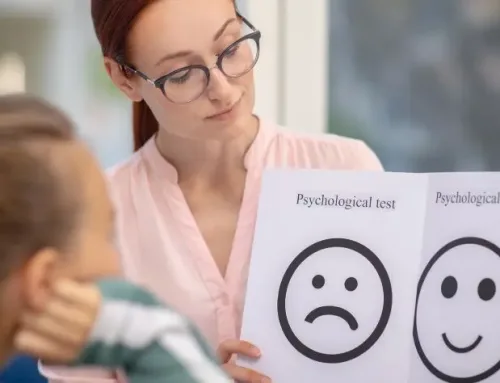How to Become a Licensed Clinical Psychologist?

Wondering how to become a licensed psychologist? Whether you’re drawn to psychology through personal experience or a drive to serve others, the path to licensure is structured, purposeful, and rewarding.
Licensed clinical psychologists play a critical role in mental health care, equipped with the authority to diagnose, treat, and support clients across a wide range of needs. The process involves advanced education, hands-on clinical work, and meeting state-specific requirements. If you’re ready to step into this role, understanding the full pathway is your next step.
How to Become a Licensed Clinical Psychologist?
What Is a Licensed Clinical Psychologist?
A licensed clinical psychologist holds the highest level of independent practice authority in the field of mental health. This role combines advanced clinical training with the ability to assess, diagnose, and treat complex psychological conditions across diverse populations. Earning this title requires years of focused education, supervised experience, and a deep understanding of both the science and art of therapy.
Licensed clinical psychologists are trained at the doctoral level, which includes specialized education in psychological testing, advanced treatment planning, and research-informed interventions. Their scope of practice includes working in private practice, hospitals, academic settings, and integrated care teams.
- Credentials: Doctoral degree (PsyD or PhD) and state licensure
- Authority: Independent practice, psychological testing, supervision of other clinicians
- Difference: Greater clinical depth and broader scope than LMFTs, LPCCs, and LCSWs
This distinction positions licensed clinical psychologists as leaders in mental health care—ready to support individuals with a wide range of psychological needs, from everyday challenges to serious mental illness.
Complete Pathway to Licensed Clinical Psychologist
Becoming a licensed clinical psychologist takes dedication, time, and a clear plan. Every step—from undergraduate coursework to independent licensure—builds the skills and credentials needed to practice at the highest level of mental health care. At SCUHS, we’ve designed our Doctor of Psychology (PsyD) in Psychodynamic Psychology program to fit seamlessly into this journey, giving you an accelerated, well-supported route to licensure in California.
Step 1: Bachelor’s Degree (4 Years)
The first step is earning a bachelor’s degree, typically in psychology or a related field. This is where foundational knowledge is developed, along with early exposure to research, theory, and human behavior. Graduate schools also look for a solid GPA, letters of recommendation, and experience that shows commitment to the field.
- Recommended major: Psychology or related behavioral science
- Important focus areas: Research, clinical exposure, GPA building
- Goal: Prepare for competitive graduate school applications
Step 2: Master’s Degree (2 to 3 Years)
A master’s degree in psychology or a related discipline strengthens your academic and clinical foundation. This step includes advanced coursework, supervised training, and opportunities to deepen your professional skills. It’s also the stage where students begin shaping their focus areas within mental health.
Maintaining strong academic performance, gaining clinical hours, and developing a professional identity are all essential during this phase. The master’s degree is also a key requirement for admission into our PsyD program at SCUHS.
Step 3: SCUHS Doctoral Program (3.3 Years)
The Doctor of Psychology (PsyD) in Psychodynamic Psychology program at SCUHS offers an accelerated 3.3-year timeline, designed for students ready to move forward with focused clinical training. Our curriculum integrates psychodynamic theory, neuroscience, trauma-informed care, holistic health, and cultural understanding into clinical approaches to assessment and treatment.
Led by Dr. Jens Schmidt, the program director, whose expertise is grounded psychodynamic child psychology and psychotherapy, the SCUHS curriculum offers a powerful blend of academic depth, clinical training and holistic development.
Have questions about how to get started or whether you’re eligible? Reach out to us anytime at admissions@scuhs.edu—we’re here to help you plan your next step.
Step 4: Predoctoral Internship (1 Year)
After completing academic coursework and comprehensive exams, students who plan to pursue licensure in psychology may begin accruing supervised professional experience. This stage typically involves working full-time or part-time in approved clinical settings under qualified supervision.
Step 5: Postdoctoral Supervision (1–2 Years)
Following the internship, most states—including California—require at least 1 to 2 years of postdoctoral supervised practice. This is where new psychologists refine their skills, explore specialty areas, and develop confidence as independent practitioners. It’s also a time to build your reputation and begin setting long-term career goals.
Step 6: Licensing Examination and Certification
The final step is passing the Examination for Professional Practice in Psychology (EPPP) and any state-specific jurisprudence exams required for licensure. This process also includes application submission, background checks, and official documentation.
Once licensed, you’re fully qualified to practice independently as a licensed clinical psychologist; ready to lead, support, and make a lasting impact in the field of mental health.
The SCUHS PsyD: Designed for Tomorrow’s Clinical Psychologists
Your choice of doctoral program shapes not only your education, but your entire clinical psychology career. At SCUHS, we’ve designed our PsyD program to give you the knowledge, experience, and confidence you need to lead in today’s mental health field. From an accelerated timeline to expert-led training and a flexible format that supports your lifestyle, our program is built to support your goals from day one.
Accelerated Timeline Advantage
Our PsyD is structured for motivated professionals who are ready to move forward with purpose. With a 3.3-year completion timeline, it’s one of the fastest paths to becoming a licensed psychologist in California. You will enter the field earlier, begin practicing independently sooner, and start realizing the return on your educational investment in less time.
- Program length: 3.3 years vs. 4–7 years in traditional models
- Licensure: Earlier eligibility for independent psychologist credentials
- Career entry: Faster transition into full-scope clinical practice
- Efficiency: Less time in school, more time building your future
Comprehensive Clinical Training Excellence
SCUHS students are trained across a wide range of clinical competencies, with a curriculum —led by Dr. Jens Schmidt—that balances psychodynamic theory and evidence-based interventions. You will graduate with advanced skills in psychological assessment, diagnosis, testing, and psychotherapeutic intervention, ready to work with diverse populations and complex clinical needs.
Hybrid Format for Working Professionals
We know many of our students are balancing jobs, families, and life responsibilities. That’s why we have built our program in a hybrid format—combining online coursework with in-person weekend residencies. This structure gives you the flexibility to learn from where you are while still gaining essential hands-on experience from in-person interaction with your faculty and peers.
With SCUHS, you do not have to put your life on hold to advance your career. You can earn a premier education while staying connected to your goals and your community.
Clinical Psychology Specializations and Practice Areas
Clinical psychology is a wide and evolving field, offering space for you to find your focus and shape your professional identity. Whether you’re drawn to therapy, diagnostic work, or a specific population, your doctoral training creates the foundation for deep, impactful specialization.
Therapy and Counseling Specializations
Many clinical psychologists focus on providing therapy across a variety of treatment models. Specializations allow you to tailor your approach and deepen your expertise in areas that align with your clinical style and the populations you are most passionate about serving.
-
- Psychodynamic therapy and psychoanalytic approaches
- Emotional regulation work
- Trauma-informed care, PTSD treatment, and recovery-focused models
- Clinical focus on anxiety, depression, and mood disorders
- Child and Play therapy and parent work
These areas are especially relevant in California, where diverse communities seek culturally attuned, evidence-based support from licensed professionals.
Assessment and Testing Specializations
Assessment is a core part of a clinical psychologist’s scope of practice. From understanding learning differences to conducting forensic evaluations, these tools help psychologists provide clarity and support for clients, schools, healthcare teams, and courts.
You can choose to focus on:
- Psychological and neuropsychological assessments
- Intelligence testing and personality inventories
- Forensic evaluations for legal and correctional settings
- Comprehensive clinical diagnostic assessment for treatment planning
Psychologists trained in these specialties often collaborate with multidisciplinary teams and bring essential insights to complex cases.
Practice Setting Options
One of the benefits of becoming a licensed clinical psychologist is the flexibility to choose where—and how—you practice. The training you receive at SCUHS prepares you for roles across a wide spectrum of clinical environments.
Some of the most common practice settings include:
- Independent or group private practice
- Hospitals, integrated health systems, and inpatient care
- Community mental health centers and outpatient clinics
- Academic institutions for teaching, supervision, or research
Each setting brings different opportunities for growth, specialization, and impact—giving you the freedom to align your work with your values and lifestyle.
Licensing Requirements by State
Becoming a licensed clinical psychologist involves meeting both national and state-specific requirements. While the core path is consistent—doctoral education, supervised experience, and licensure exams—each state outlines its own process and expectations. If you are planning to practice in California or elsewhere, it’s important to understand the specific requirements from day one. At SCUHS, we help you prepare with training and support that align with professional licensing pathways across the country.
Education Requirements
To become licensed, most states require a doctoral degree in psychology from a qualifying institution. The SCUHS PsyD program meets those expectations and provides the comprehensive education needed for clinical readiness. Although SCUHS is not APA-accredited, our institution is WSCUC accredited; it meets California’s approval standards and prepares students to pursue licensure in states where APA accreditation is not required.
- Doctoral degree from an regionally accredited psychology program (SCUHS meets this requirement under California’s licensure standards)
- Internship: APA-accredited or state-approved sites
- Core coursework: Psychological theory, assessment, ethics, and treatment
- Practical training: Required number of clinical practicum and internship hours
Supervision and Experience Requirements
Every state requires supervised clinical experience before full licensure. This typically includes both a predoctoral internship and a postdoctoral residency. The number of hours, supervision ratios, and reporting guidelines vary, but the purpose is the same: to ensure emerging psychologists are well-prepared for independent practice.
Most states also require continuing education to keep your license current throughout your career.
Examination and Application Process
To qualify for licensure, you’ll need to pass the Examination for Professional Practice in Psychology (EPPP)—a national standardized exam. Most states require a score of 500 or higher. You’ll also take a state-specific jurisprudence and ethics exam, complete a background check, and submit all required documentation for review.
The full process includes:
- EPPP exam
- State law and ethics exams
- Application submission and processing
- Criminal background check and professional references
Each step brings you closer to independent practice as a licensed clinical psychologist.
SCUHS Advantage for Licensing Success
Licensing is a major milestone in your journey to becoming a clinical psychologist, and we are here to help you reach it with confidence. At SCUHS, our PsyD program is intentionally designed to support your success by providing you with a solid educational foundation in your degree and overall supporting your professional development. We focus on giving you the tools, knowledge, and mentorship to move through each stage of the process with clarity and readiness.
Comprehensive Examination Preparation
Licensing exams require long-term strategy. From early coursework through your final year, you will be guided through the core content areas that appear on the exam, supported by faculty who understand the nuances of state and national requirements.
- Licensing guidance from Dr. Schmidt and experienced faculty
- Practice exams and targeted study resources
- Mentorship and support from alumni and professionals
Professional Development Excellence
Beyond exams and supervised hours, becoming a successful psychologist is about growing into the role. Our program emphasizes professional development from day one, helping you build your clinical identity, develop ethical leadership, and cultivate long-term career vision.
You will track your competencies, receive direct feedback, and stay engaged with mentorship that keeps you grounded and focused throughout your training. We are here to support your growth—academically, clinically, and professionally.
Ready to take the first step toward licensure? Apply now or reach out to us at admissions@scuhs.edu for personalized guidance.
Career Outcomes and Earning Potential
A doctorate in clinical psychology opens doors that go far beyond a typical therapy role. With your PsyD, you are positioned for a career with professional independence, financial stability, and the flexibility to work across diverse settings. Whether you’re drawn to private practice, healthcare systems, or academic leadership, a licensed psychologist credential gives you the credibility and authority to thrive.
Employment Opportunities
Licensed psychologists enjoy a wide range of career paths. You can run your own private practice, lead mental health programs, or work in hospitals, schools, and community clinics. Many also take on roles in teaching, training, and supervision—supporting the next generation of mental health professionals.
- Independent private practice
- Clinical leadership in hospitals and integrated care teams
- Specialized treatment areas like trauma, neuropsychology, or child psychology
- Teaching, consultation, and clinical training roles
Salary and Financial Benefits
According to the U.S. Bureau of Labor Statistics, the job outlook for psychologists from 2024 to 2034 is growing 6% faster than average—with strong demand in California and nationwide. Licensed psychologists often earn significantly more than master’s-level therapists, especially in private practice or specialized roles.
Your ability to set your own fees, bill for assessments, and offer unique services means long-term financial stability and professional growth.
- Higher earning potential than master’s-level clinicians
- Fee-setting autonomy in private practice
- Additional income from psychological testing and evaluations
- Steady growth across healthcare, education, and consulting
Professional Recognition and Status
As a licensed psychologist, you hold the highest credential in the mental health field. This status brings with it both authority and respect—whether you’re supervising other clinicians, conducting research, or serving as a consultant.
You’ll be recognized as a leader in your field, equipped to influence systems of care and contribute to the future of psychology through scholarship, innovation, and practice.
Ready to Begin Your Licensed Clinical Psychologist Journey?
At SCUHS, our PsyD program offers the education, training, and support you need to build a meaningful and independent career in mental health. Join one of our virtual information sessions with Dr. Schmidt to explore the curriculum, admissions process, and financial aid options.
Have questions or ready to apply? Reach out to us at admissions@scuhs.edu—we are here to help you take the next step.
Frequently Asked Questions
What’s the difference between a clinical psychologist and therapist?
A licensed clinical psychologist holds a doctoral degree, can practice independently, and is trained in psychological testing and advanced treatment. This role offers a broader scope, higher-level responsibilities, and greater professional recognition than master’s-level therapists.
Can I practice while completing supervision requirements?
Yes. You can work under supervision as a Psychology Associate or in similar roles. Many positions are paid and count toward postdoctoral hours while you build hands-on experience.
What makes SCUHS different for clinical psychology training?
Our accelerated 3.3-year PsyD combines a unique theoretical foundation in contemporary psychodynamic theory, neuroscience, and trauma-informed approaches, expert faculty, hybrid flexibility, and strong outcomes on licensing exams and career placement.
Do I need specific undergraduate preparation?
A psychology degree is helpful but not required. Your master’s degree in psychology or a related mental health discipline is the prerequisite for admission. We review each applicant holistically.
What are the career prospects for licensed clinical psychologists?
Career prospects are excellent. Licensed clinical psychologists enjoy high demand, strong salaries, practice independence, and options to specialize or work across varied clinical settings.
Related Posts




